Donate to the Oxfam Christmas Appeal and support more communities who are lighting the way to a better, brighter future
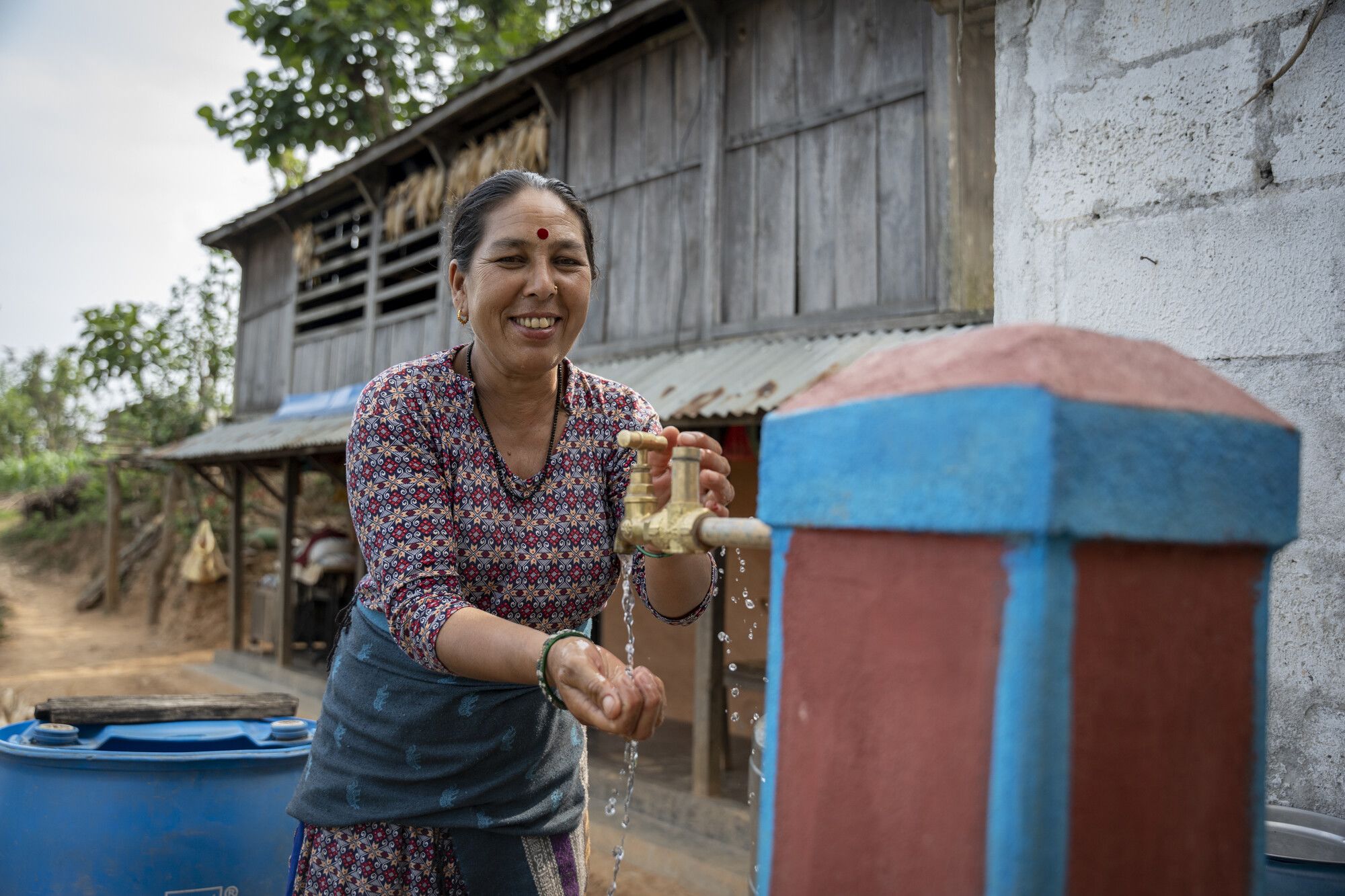
When prices of food and energy keep rising, when more people are struggling in more parts of the world, it may feel like we’re living in dark days.
But there is light to be found, in communities who are pioneering new projects for a brighter future.
In Dhading, Nepal, Pampha and her neighbours are putting an end to years of extreme water shortages. Further south in Nunthar, Nepal, Sangita and her women’s group are championing sustainable new livelihoods. And in Pakistan, Samjho helped bring safe water to her community in the wake of monsoon flooding.
Give a one-off donation
Give a monthly gift
Donate this Christmas to support more communities
" Now, we have a tap in every house"
Sangita’s taking on plastic pollution
Global problems including poverty and pollution are interlinked and, as Sangita will show you, so are the community-inspired solutions.
In 2022, the seasonal monsoon rains in Pakistan were devastatingly heavy, and extreme levels of rainfall led to deadly flooding and landslides. In the destruction, millions of people were left without access to safe drinking water – including Samjho’s community in Sanghar, Sindh province.
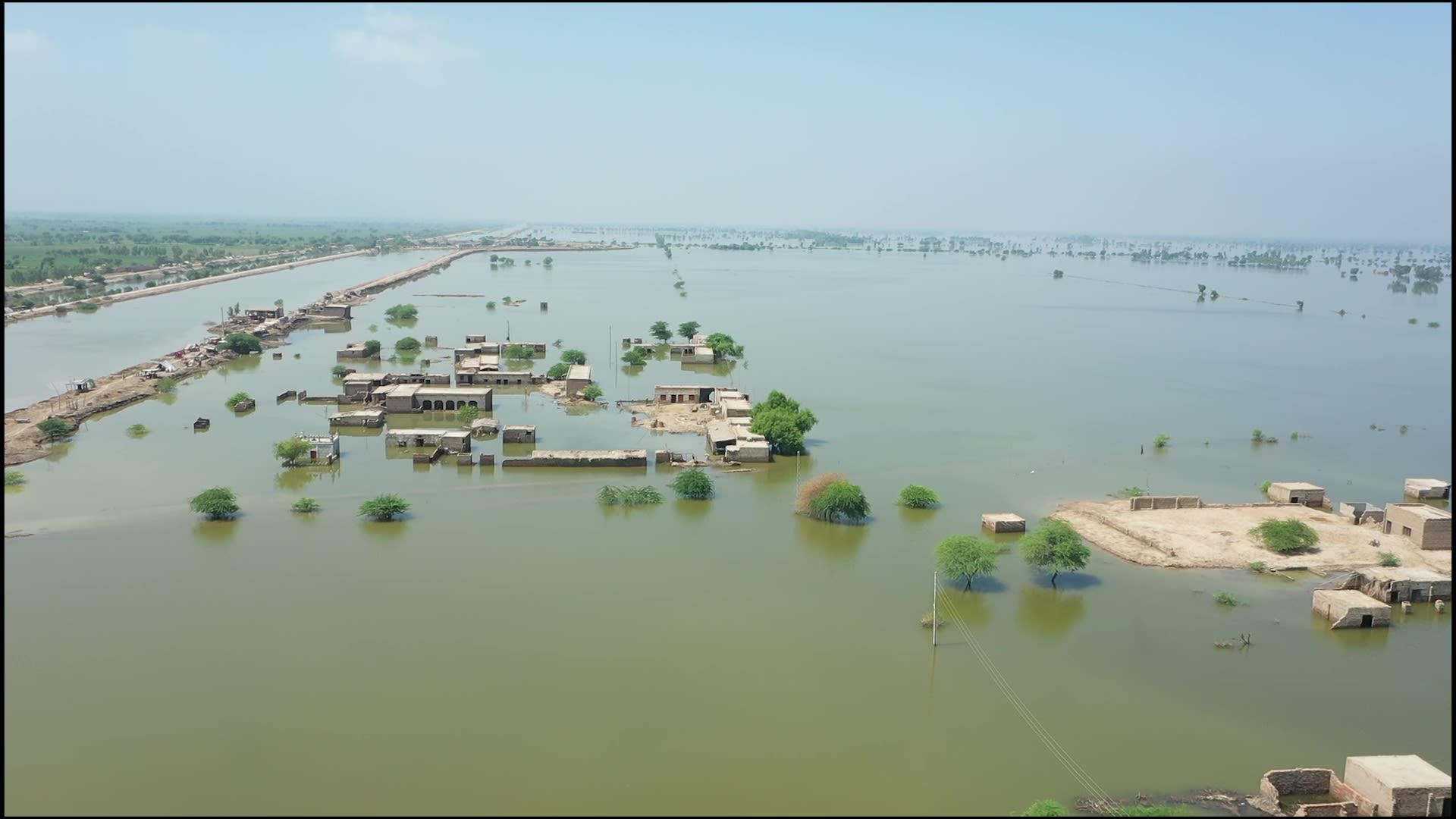
In 2022, the seasonal monsoon rains in Pakistan were devastatingly heavy, and extreme levels of rainfall led to deadly flooding and landslides. In the destruction, millions of people were left without access to safe drinking water – including Samjho’s community in Sanghar, Sindh province.
Even before the flooding, their closest water pump was a long walk from the village, and already dangerously unfit for purpose.
"If you travel in these villages you will not find many handpumps, so people have difficulty accessing water. To travel on foot to get water in this scorching heat is difficult but we all do it for our families."
In the aftermath of the disaster, damage to the water supplies meant the need to improve access to safe drinking water was more critical than ever.
So Samjho’s community worked with local partner, Strengthening Participatory Organization (SPO)and Oxfam to install new hand pumps in their village.

Samjho and others from their village stand next to their new water pump. Photo: Tooba Niazi/Oxfam.
Samjho and others from their village stand next to their new water pump. Photo: Tooba Niazi/Oxfam.
With the new hand pumps, Samjho and her village ensured their families and children could have access to safe, clean water and all the benefits it would bring. From time saved that could be spent together, spent at school or earning an income, to the many health benefits, the community were lighting the way to a brighter future for themselves.
" This hand pump gives us drinkable water and I no longer have to worry that my child will fall sick of drinking this water."
Donate to support community-led change


Pampha’s community is putting an end to severe water shortages

Across the world, 2.2 billion people don’t have access to clean, safe water at home. Until recently, Pampha’s community in Dhading, Nepal was among them - sharing one tap for the entire village.
“I used to wake up at 3 or 4 am to fill my buckets from the communal tap, since I had to wait hours for my turn to get my water buckets filled.”
Early starts and long days, that didn’t even give Pampha enough water for all her washing, cooking or keeping her crops alive.
“By 6 am, I used to bring 2 to 3 rounds of water and started doing my regular household chores. The people who grew crops and had many animals at home had to fetch water almost 15 times a day.”
But when Pampha and her neighbours teamed up with local partners, Forum for Community Upliftment System Nepal (FOCUS Nepal) and Oxfam, they created a better, sustainable water system. Starting with a tap in every home.
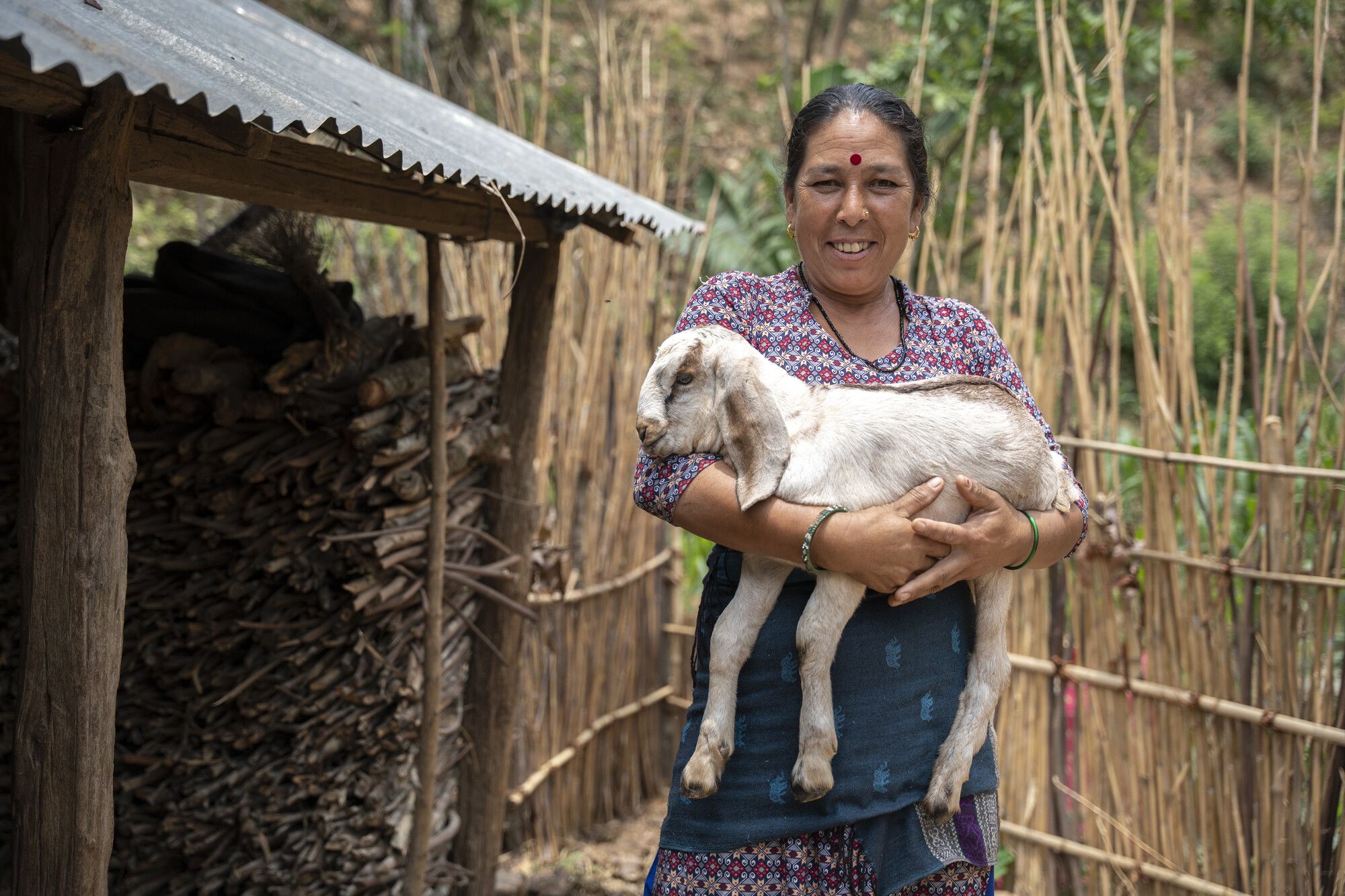
“Now with this tap water available here, there is a lot of relief. The time it took to go get the water, we could finish other chores in the house. I can look after my granddaughter, wash clothes and shower at home. It is so convenient now.”
The water supply system was designed with the community’s needs in mind. That included taps being installed for every household, providing water for two hours every morning.
While previous water systems relied on volunteers to manage repairs, Pampha and her neighbours couldn’t as they needed to earn an income. The new water system is completely sustainable, with everyone in the community paying for it to be maintained.
“I wish everyone would have this facility. No one should face difficulty or suffer for water.”
Give a one-off donation
Give a monthly gift
Donate this Christmas for life-changing projects
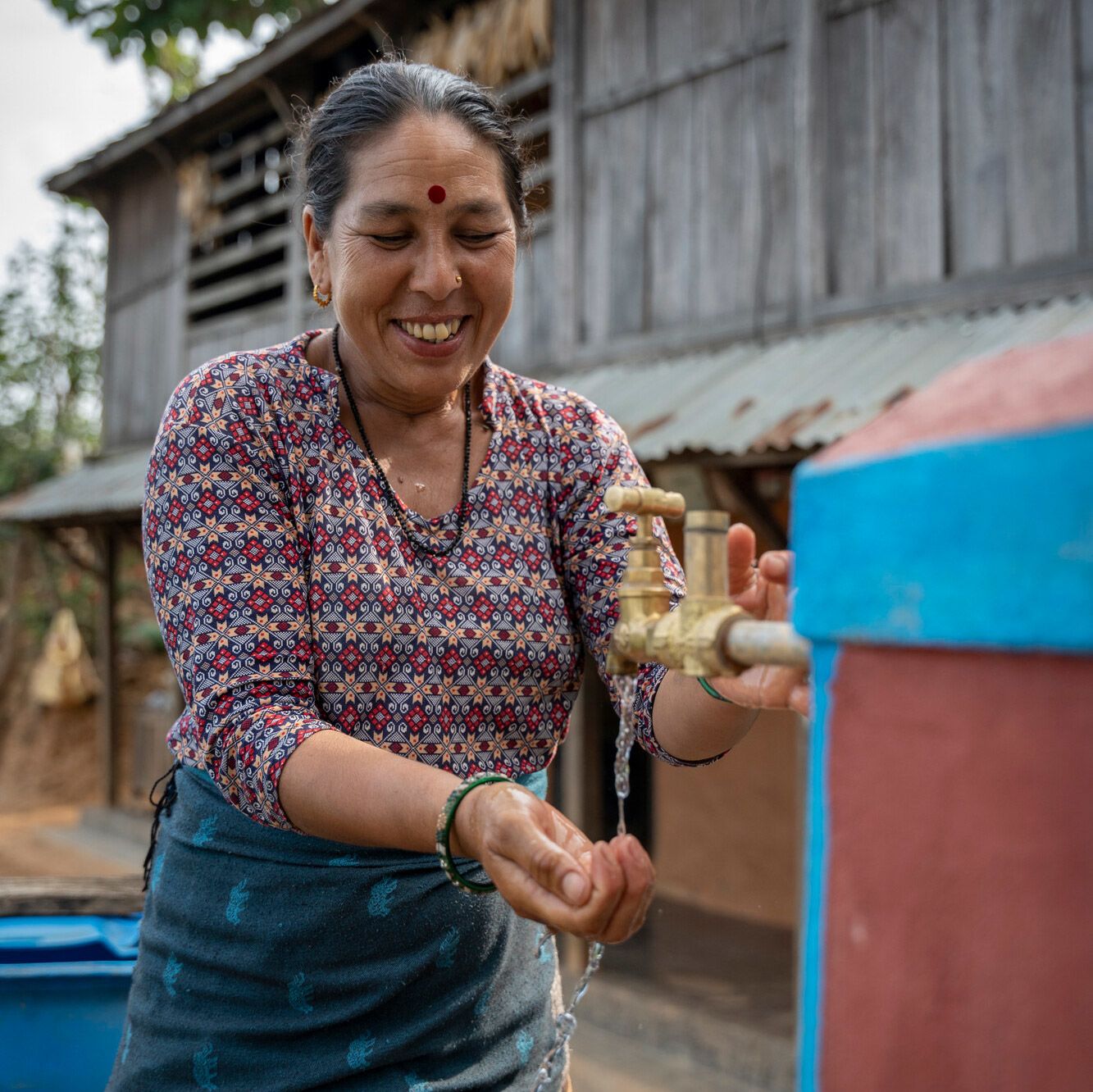
“Amazing progress happened here. Replicating this would be a good idea.”
Roshan, who worked in partnership with Oxfam and FOCUS Nepal to bring the new water system to communities including Pampha’s, has seen the incredible changes that taps in every home have brought:
“After the earthquake in 2015, the water levels started to decrease. People had to walk to the river or look for new wells. But since this project, they can open the tap in their house ... and get water.”
Together, FOCUS Nepal and Oxfam are working with communities across the country:
60,000 people are already benefiting from clean water in Nepal
3 districts now have secure supplies of safe, clean water and hundreds more districts to be reached.
£5-6 million needed to complete the project and reach over 100,000 people
Donate this Christmas to support more progress
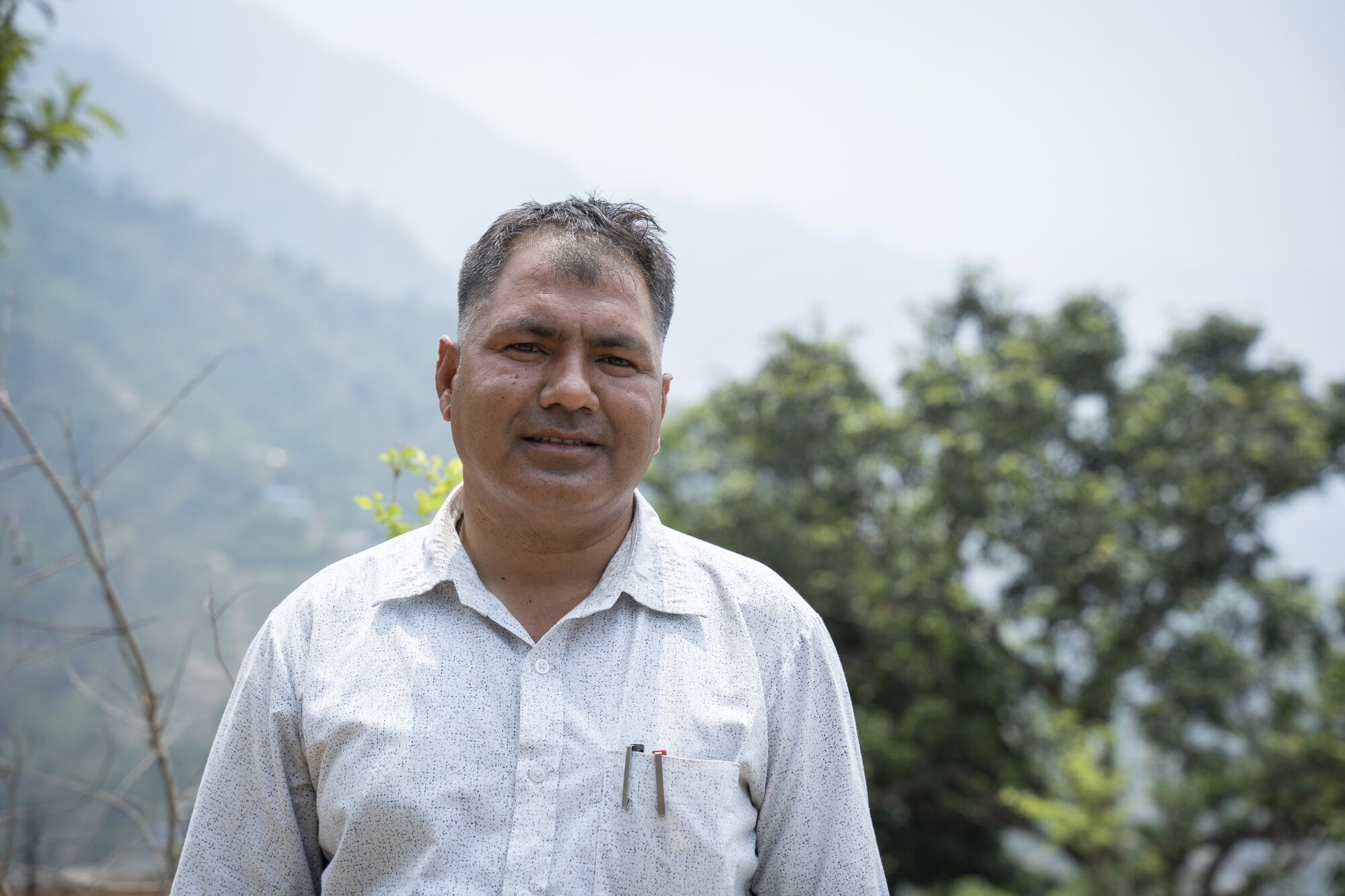
Globally, there’s more hunger, more conflict, and disaster and poverty has increased for the first time in 25 years.
This year, with the prices of food and fuel still rising, communities are struggling in more parts of the world. And as conflict continues to devastate communities, we’ve also seen the horrific impact of floods and earthquakes. The injustice of limited access to life’s essentials, including water, is being felt more acutely in these tough times.
Right now, it’s even more important that we all work together – with local partners, communities and agencies – lighting the way with long-term solutions as well as tackling immediate needs like water scarcity.
Only by truly collaborating with communities all over the world can we overcome the inequality that keeps people in poverty.
2.2 billion people worldwide don’t have access to safely managed water at Home.

Join Oxfam by giving a monthly donation and you’ll continue the global fight to increase access to water and opportunities by calling on governments across the world to:
Governments must impose taxes on rich individuals and corporations, particularly those making record profits from the climate crisis such as fossil fuel companies.
Reduce emissions drastically: All countries, especially rich polluting nations, must rise to their responsibilities in line with their fair share to limit the global temperature rise to below 1.5°C.
Tackle the gender inequalities that come with unequal access to water, including girls missing school to collect water.
Compensate those most affected by the climate crisis: Rich countries must meet longstanding promises to provide US$100bn per year to help poorer countries cope with climate change.
Support more projects for safe, sustainable water systems and climate-adapted hygiene programmes.
Funding work to reach more rural and remote communities to work towards everyone having access to safe water, sanitation and hygiene.
Support those most at risk through early warning and preparedness ahead of the effects of the climate crisis.
More communities are ready to light the way
Communities across the world have plans that could help end poverty, bring clean water to villages, support sustainable livelihoods and much more.
Support them with tools, training, equipment and skills – and if you sign up for a regular gift today, you could receive a free festive knit for your Christmas tree.

